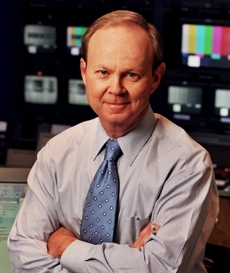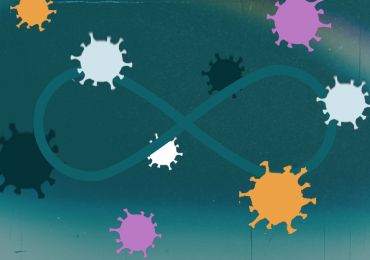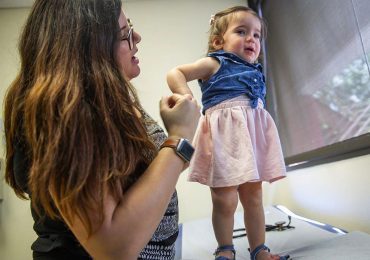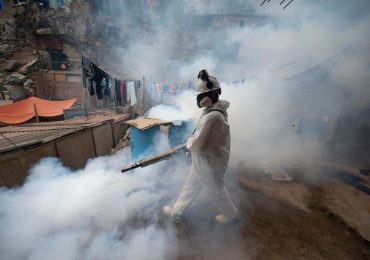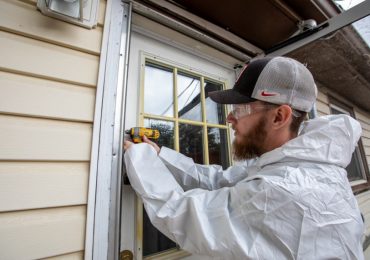by MIKE MAGEE
Exactly 1 year ago, mental health experts alerted the medical world to their version of an assessment scale for yet another new condition – “doomscrolling.”
As defined in the article, “Constant exposure to negative news on social media and news feeds could take the form of ‘doomscrolling’ which is commonly defined as a habit of scrolling through social media and news feeds where users obsessively seek for depressing and negative information.”
No one can deny a range of legitimate concerns. Faced with continued background noise from the pandemic, add global warming, renegade AI, and the Republican Congress. And now, the devastating attacks on Israel and growing instability in the Middle East. It is no wonder that we can’t turn off the Instagram feed.
With real challenges like these, our troubled world needs her doctors and nurses to stay focused more than ever on their primary professional missions – managing health and wellness, sickness and disease, fear and worry, and yes, now “doomscrolling.”
John J. Patrick PhD, in his book Understanding Democracy, lists the ideals of democracy to include “civility, honesty, charity, compassion, courage, loyalty, patriotism, and self restraint.” The 4.2 million registered nurses and 1 million doctors in America are agents of democracy.
Regrettably, they are already being drawn away from patients by three powerful forces.
Corporate Dislocation – To assure maximum reimbursement, doctors and nurses are routinely asked to prioritize time and contact with data over time and access to patients.
Health Technology and AI Substitution – Rather than engineering solutions to expand real-time patient contact, most innovations are further distancing patients from healthcare professionals.
Legislative Intrusion – Complex medical decisions, long entrusted to the patient-health professional relationship to negotiate, are being transferred to ultra-conservative legislators.
We live under a constitutional and representative democracy, as do two-thirds of our fellow citizens in over 100 nations around the world. The health of these democracies varies widely. The case for democracy emphasizes its capacity to enhance dignity and self-worth, promote well-being, advance equal opportunity, protect equal rights, advance economic productivity, promote peace and order, resolve conflicts peacefully, hold rulers accountable, and achieve legitimacy through community-based action.
One of the challenges of democracy is to find the right balance in pursuing “the common good” which has dual (and often competing) arms. One arm is communitarian well-being and the other, individual well-being.
Blending personal and public interests is complex. In health, one might argue, this tension has led to our dual system – one, largely profit driven, interventional and science discovery based, and the other largely public, preventive and focused on communitarian public health.
Both nursing and medicine have embraced professionalism and launched new graduates by voicing “oaths” or promises to themselves, their colleagues, and our society as a whole. These lists of promises or pledges, their language and priority ordering, help reveal both the history and intent of these noble professions.
Of course, the most famous oath in Medicine is the Hippocratic Oath reaching back some 2000 years to Greece. In pledging to a grouping of ancient deities, it recognized that interventions should “do no harm” and that confidentiality was paramount.
By 1964, this oath was sufficiently out of date that many medical schools embraced an updated version written by Louis Lasagna, MD. The oath includes a communitarian connector: “I will remember that I remain a member of society, with special obligations to all my fellow human beings, those sound of mind and body as well as the infirm.”
The Penn State College of Medicine’s Oath in 2022 offered a counter-balance by giving top billing to the patient, with the oath to the patients, not to Greek gods: “By all that I hold highest, I promise my patients competence, integrity, candor, personal commitment to their best interest, compassion, and absolute discretion, and confidentiality within the law.”
The Geneva based World Medical Association, in the shadow of the Nuremberg Trials, provided a list of pledges in
their 1946 Declaration of Geneva in order of appearance including:
the service of humanity
patents first
patient autonomy and dignity
respect for human life
absence of bias or prejudice on any basis
commitment to patient privacy
guided by professional conscience and dignity
honor the noble traditions of the profession
respect and gratitude to teachers, colleagues and students
share knowledge to advance health care
commit to personal health and well-being
never violate human rights.
Nursing has also relied on professional Oaths. The first was the Nightingale Pledge, created in 1893 by the Farrand Training School for Nurses and named after Florence Nightingale. It is believed to be based on the Hippocratic Oath and was modernized in 1935. In the 1950’s, the American Nurses Association (ANA), created a formal Code of Ethics, including Nursing’s 9 Provisions (or Pledges) committing to: compassion and respect, patient-focus, advocacy, active decision making, self-health, ethical environment, scholarly pursuit, collaborative teamwork, professional integrity and social justice.
Health professionals need to be laser focused during these troubled times on patients. Doctors and nurses, day in and day out, by managing fear and worry, reinforcing community and family bonds, and championing hopefulness, guard against a true “doomsday scenario” – the destruction of our Democracy from within. The patient is our primary concern and deserves our full professional attention.
Mike Magee MD is a Medical Historian and regular contributor to THCB. He is the author of CODE BLUE: Inside America’s Medical Industrial Complex (Grove/2020).
Leave a comment

